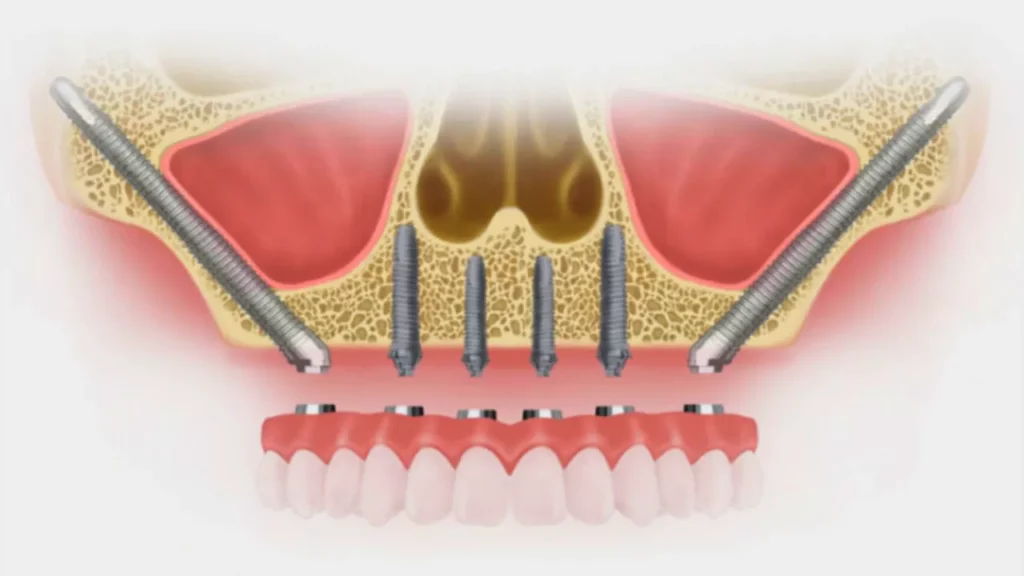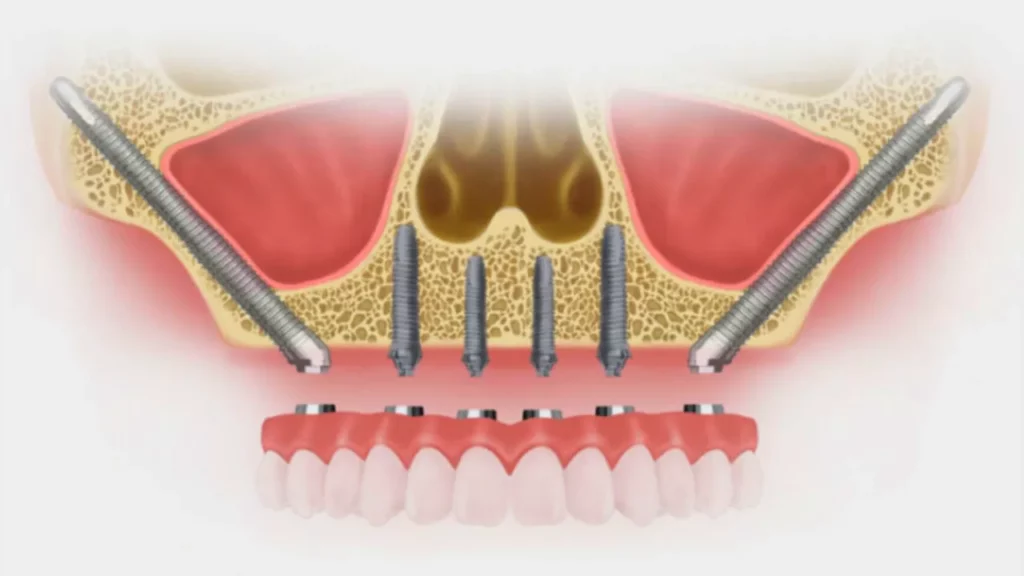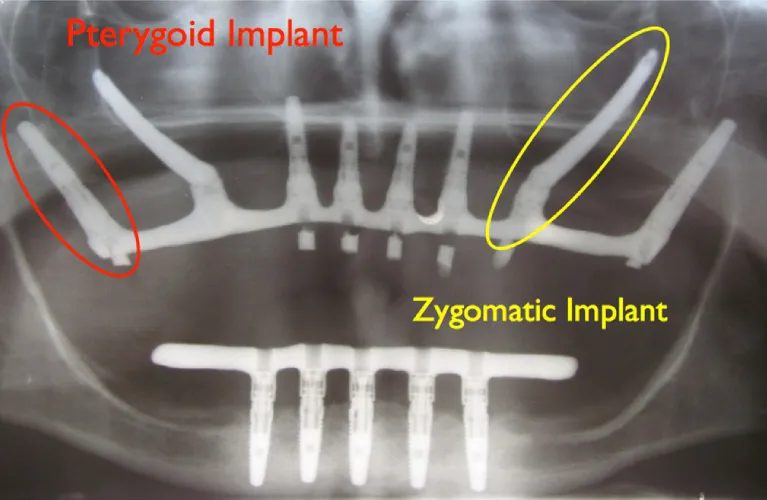
Zygoma Implants In Vadodara
Getting dental implants can be stressful. The procedure often involves a bone graft, which some patients dread.Fortunately, there are certain types of implants that enable you to avoid bone grafts altogether.
A zygomatic implant is a type of dental implant designed for people who suffer from advanced bone loss. When teeth are lost or extracted, the surrounding bone is no longer stimulated by chewing force and recedes over time.
Since the jawbone is atrophied and unable to support a dental implant, the zygomatic implant is designed to be inserted into the zygomatic bone (cheekbone) instead. That way, patients avoid needing a bone graft (taken from the hip) in order to get their implant.

The advantages of zygomatic implants | Zygoma Implant In Vadodara
Shorter treatment time
The time required for the implant to fuse completely with the zygomatic bone is approximately 4 to 6 months, whereas a bone graft followed by the placement of traditional implants requires a total of 9 to 12 months.
No bone graft required
Since the implant is inserted into the zygomatic bone rather than the jawbone, no bone graft is needed. Therefore, the patient will not need a second surgery in addition to the implant placement, meaning that there will be no second surgical site.
Same-day denture placement
As with All-on-4 implants, the temporary dentures are installed at the same time as the zygomatic implants, meaning that the entire process can be done in one procedure.
High success rate
Zygomatic implants are proven to be effective. Their success rate is just as high as traditional implants.
The difference between zygomatic implants and conventional dental implants
Zygomatic implants differ from classic dental implants in several ways.First, zygomatic implants are 3 to 5 times longer than traditional implants and are inserted at a pronounced angle. These features allow them to be properly anchored in the cheekbones while avoiding touching the sinuses.
Another difference is the surgical technique used to place zygomatic implants. The procedure is more delicate than placing regular dental implants. The surgeon must reach the zygomatic bone, which requires a special surgical technique.Only a specialized maxillofacial surgeon who has extensive experience with this technique will be able to perform the procedure.
Pterygoid Implant In Vadodara
If you have many missing teeth and compromised bone volume as a result, you need a lasting solution that will meet your requirements in terms of both aesthetics and functionality.
Zygomatic and Pterygoid implants are special dental implants designed to provide a foundation for fixed upper teeth for patients with insufficient upper bone height and width (maxillary atrophy).

Who needs Zygomatic and Pterygoid Implant ?
Patients who have been missing multiple upper teeth for a long time commonly have insufficient bone support/volume for traditional dental implants. Traditional removable upper denture used to be the only possible solution for these patients. Even though the upper denture may work for a period of time in terms of providing esthetic and functional results (patients look like they have teeth and can even eat softer foods), as years go by, the upper jaw bone continues to deteriorate and shrink.
As the upper jaw bone deteriorates and shrinks, the existing denture becomes looser and looser, to the point where a patient cannot even wear it comfortably. There is a workable solution for this challenging clinical situation. Two types of special dental implants have been designed and used for the past 30 years – Zygomatic implants and Pterygoid implants.
How Do Zygomatic And Pterygoid Implants Work?
Zygomatic implants are placed into the cheekbones (zygoma) and Pterygoid implants are placed at the junction of maxillary (upper jaw) bone and Pterygoid process of the Sphenoid bone.
These two anatomical areas are very resistant to ongoing bony atrophy of jaws and also have very good, dense, stable bone that can be used as a foundation to anchor the dental implants.

Can Zygomatic Or Pterygoid Implants Be Alternatives To All-On-4?
Interestingly, fully edentulous patients are not the only ones who can take advantage of this established and proven technology. There are a lot of patients who are interested in a “Teeth in a Day” or “All-on-4” type of procedure, but who have been told in the past that they are not a candidate for it. These patients have very large maxillary sinuses (empty spaces inside the upper jaw that communicate with the nasal cavity).
Some patients just naturally have enlarged maxillary sinuses, whether they are aware of it or not. These patients are also candidates for Zygomatic and Pterygoid implants that can serve as anchorage for fixed, non-removable teeth.
